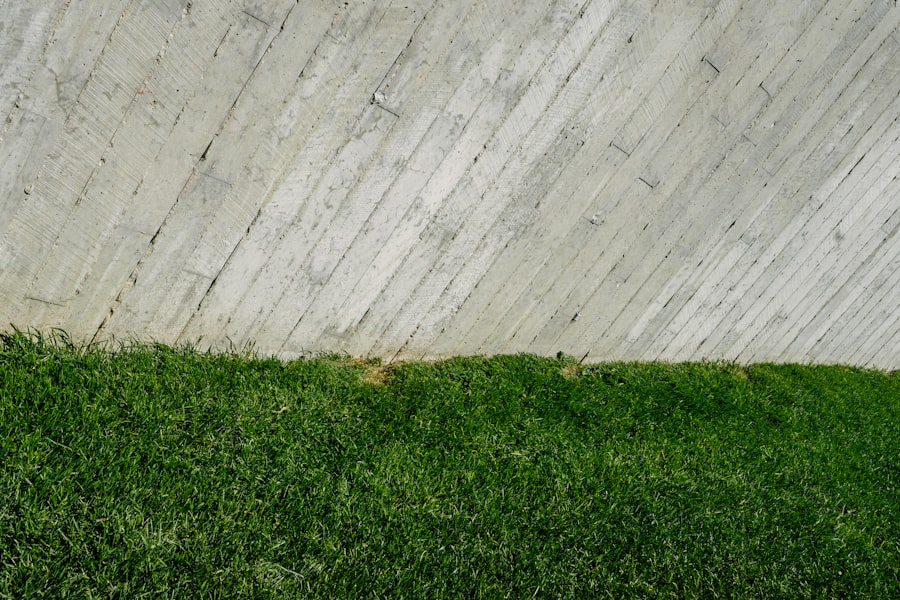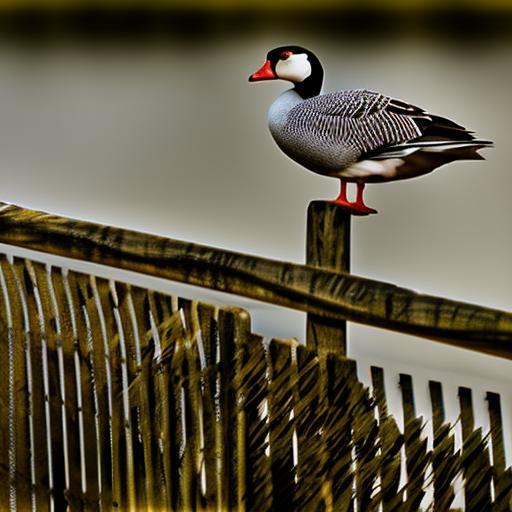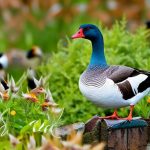Geese invading properties can be a frustrating and problematic issue for many homeowners. These large birds are known for their aggressive behavior, loud honking, and messy droppings. They can cause damage to lawns, gardens, and landscaping, as well as pose a threat to the safety of children and pets. Geese are attracted to properties with open spaces, water sources, and ample food supply. Once they find a suitable location, they can quickly multiply and become a nuisance. It is important for homeowners to find effective solutions to keep geese out of their property.
Key Takeaways
- Geese can be a nuisance and cause damage to your property.
- A fence is an effective way to keep geese out of your property.
- The best types of fences for geese are ones that are tall and have small gaps.
- The height of your fence should be determined by the size of the geese in your area.
- Materials such as PVC, metal, and netting are good options for a geese-proof fence.
Why You Need a Fence to Keep Geese Out
A fence is the most effective solution to keep geese out of your property. Geese are large birds that are not capable of flying over tall fences. By installing a fence around your property, you create a physical barrier that prevents geese from entering. A fence also acts as a visual deterrent, making geese less likely to attempt to enter your property in the first place. Additionally, a fence provides privacy and security for your property, keeping unwanted visitors out.
Types of Fences That Work Best for Geese
There are several types of fences that work best for keeping geese out of your property. One popular option is a chain link fence. Chain link fences are durable, affordable, and easy to install. The small gaps in the chain link mesh prevent geese from squeezing through or getting stuck. Another option is a welded wire fence. Welded wire fences have smaller openings than chain link fences, making them even more effective at keeping geese out. Electric fences can also be used to deter geese. These fences deliver a mild electric shock when touched, teaching geese to stay away from your property.
How to Determine the Right Height for Your Fence
Determining the right height for your geese-proof fence is crucial to its effectiveness. The height of the fence should be based on the size of the geese in your area. Most geese can fly up to 40 inches high, so a fence that is at least 4 feet tall is recommended. However, if you have larger geese in your area, you may need to install a taller fence. It is also important to consider the slope of your property when determining the height of your fence. If your property has a steep slope, you may need to install a taller fence on one side to ensure that geese cannot fly over it.
Materials to Consider for Your Geese-Proof Fence
When choosing materials for your geese-proof fence, it is important to consider durability and effectiveness. Steel fences are a popular choice due to their strength and longevity. They are resistant to rust and can withstand harsh weather conditions. Aluminum fences are another option, as they are lightweight and easy to install. They are also resistant to rust and require minimal maintenance. PVC fences are a more affordable option, but they may not be as durable as steel or aluminum fences. It is important to choose materials that will withstand the test of time and effectively keep geese out of your property.
Installing Your Fence: Tips and Tricks

Installing a geese-proof fence requires careful planning and execution. One important tip is to use concrete for the posts of your fence. This will ensure that they are securely anchored into the ground and will not be easily knocked over by strong winds or aggressive geese. It is also important to ensure that the fence is taut and properly stretched between posts. This will prevent geese from pushing or bending the fence to gain access to your property. Additionally, it is recommended to install a gate that is wide enough for easy access but secure enough to prevent geese from squeezing through.
Maintenance and Repair of Your Geese Fence
Once your geese-proof fence is installed, it is important to regularly maintain and repair it to ensure its effectiveness. Regularly inspect the fence for any damage, such as bent or broken posts, loose wires, or holes. Repair any damage immediately to prevent geese from finding weak spots and gaining access to your property. It is also important to keep the area around the fence clear of debris and vegetation, as this can provide hiding spots for geese. Regularly trim any overhanging branches or shrubs that could provide a perch for geese to jump over the fence.
Alternative Methods for Keeping Geese Away
In addition to installing a geese-proof fence, there are alternative methods for keeping geese away from your property. One method is to use decoys, such as plastic owls or coyotes, to scare away geese. Geese are naturally wary of predators and will avoid areas where they sense danger. Another method is to use repellents, such as taste aversion sprays or motion-activated sprinklers. These products create an unpleasant experience for geese and deter them from entering your property. Scare tactics, such as loud noises or flashing lights, can also be effective in keeping geese away.
The Benefits of a Geese-Free Property
Having a geese-free property offers several benefits for homeowners. One of the main benefits is a cleaner environment. Geese droppings can be unsightly and unsanitary, especially if they accumulate in large quantities. By keeping geese out of your property, you can maintain a clean and hygienic outdoor space. Another benefit is reduced property damage. Geese can cause damage to lawns, gardens, and landscaping by trampling on plants and digging up soil. By preventing geese from entering your property, you can protect your investment in your outdoor space.
Enjoying Your Property Without the Hassle of Geese
In conclusion, geese invading properties can be a frustrating and problematic issue for homeowners. Installing a geese-proof fence is the most effective solution to keep geese out of your property. There are several types of fences that work best for geese, such as chain link, welded wire, and electric fences. Determining the right height for your fence is crucial to its effectiveness, and materials such as steel, aluminum, and PVC should be considered. Proper installation, maintenance, and repair of your geese fence are important to ensure its longevity and effectiveness. Alternative methods for keeping geese away, such as decoys, repellents, and scare tactics, can also be used. Enjoying a geese-free property offers several benefits, including a cleaner environment and reduced property damage. By taking the necessary steps to keep geese out of your property, you can enjoy your outdoor space without the hassle of geese.
If you’re looking for effective ways to protect your property from unwanted geese, consider installing a sturdy fence. A well-designed fence can serve as a barrier, keeping geese out and maintaining the integrity of your space. To learn more about the benefits of using fences to deter geese, check out this informative article on Poultry Wizard: Fence to Keep Geese Out. Discover how a properly constructed fence can help you maintain a goose-free environment while ensuring the safety and security of your property.
Meet Walter, the feathered-friend fanatic of Florida! Nestled in the sunshine state, Walter struts through life with his feathered companions, clucking his way to happiness. With a coop that’s fancier than a five-star hotel, he’s the Don Juan of the chicken world. When he’s not teaching his hens to do the cha-cha, you’ll find him in a heated debate with his prized rooster, Sir Clucks-a-Lot. Walter’s poultry passion is no yolk; he’s the sunny-side-up guy you never knew you needed in your flock of friends!







